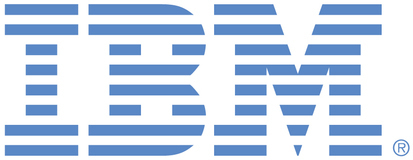
This portal is to open public enhancement requests against the products and services belonging to IBM Sustainability Software. To view all of your ideas submitted to IBM, create and manage groups of Ideas, or create an idea explicitly set to be either visible by all (public) or visible only to you and IBM (private), use the IBM Unified Ideas Portal (https://ideas.ibm.com).
Shape the future of IBM!
We invite you to shape the future of IBM, including product roadmaps, by submitting ideas that matter to you the most. Here's how it works:
Search existing ideas
Start by searching and reviewing ideas and requests to enhance a product or service. Take a look at ideas others have posted, and add a comment, vote, or subscribe to updates on them if they matter to you. If you can't find what you are looking for,
Post your ideas
Post an idea.
Get feedback from the IBM team and other customers to refine your idea.
Follow the idea through the IBM Ideas process.
Specific links you will want to bookmark for future use
Welcome to the IBM Ideas Portal (https://www.ibm.com/ideas) - Use this site to find out additional information and details about the IBM Ideas process and statuses.
IBM Unified Ideas Portal (https://ideas.ibm.com) - Use this site to view all of your ideas, create new ideas for any IBM product, or search for ideas across all of IBM.
ideasibm@us.ibm.com - Use this email to suggest enhancements to the Ideas process or request help from IBM for submitting your Ideas.

Ability to install MAS on clusters where basic security policies are turned on.
This should be possible already, have you hit a specific issue here?
Singleton is not typically allowed in most of the OpenShift Clusters.
I assume we mean cluster-scope operator installations? All maximo operators are install in namespace scope, if so, this shouldn't be an issue.
Logs running as a root are generally not allowed.
IBM standard policies prevent running as root, if you have found anything in Maximo is running as root then it's a serious bug that somehow got through our testing. We have a suite of 234 tests that are just validating policies such as required use of requests and limits, no wildcard permissions in RBAC, etc etc. Is there evidence of non-compliance?
Running anything other than restricted SCC is not allowed.
See above (AllPodsRunsAsRestricted is one of our tests, and requires pods to run set to restricted)
Sometimes OpenShift clusters do not have default storage classes, so we may have to be explicitly define if we want to use storage.
This is already supported, everything in Maximo requires a storage class to be provided. IIRC this feedback stems from a problem in DRO
YAML & Kustomize via ArgoCD is one of GitOps model to support deployment other than Ansible.
We have an argocd helm-application based gitops solution e.g. https://github.com/ibm-mas/gitops/tree/main/instance-applications/130-ibm-mas-suite/templates
Nested operators need to be explicitly declared (in most of the OpenShift environments, Operators do not have permissions to install nested operators per least privilege model)
Nested operators in MAS are defined in the OLM dependency metadata, e.g. the ibm-mas CSV contains the ibm-truststore-mgr dependency.
Sometimes there are restrictions to make use of in built opnshift-image registry, so ability to store container images in other registries/artifacts should be considered.
This is a reasonable RFE in my opinion, I would suggest raising this as a standalone RFE so that it can be prioritized separately from this general list of feedback
All containers must run as non-root user.
See above (NoRunAsRootUser checks for this)
Containers cannot run privileged.
See above (NoPrivilegedContainers checks for this)
Containers cannot mount host filesystems (No host Path mounts)
See above (NoHostPathtest checks for this)
Containers cannot attach to host network.
See above (NoHostNetwork test checks for this)
All Kubernetes objects must define resource requests/limits.
See above (ContainerDefinesResources test checks for this)
All Kubernetes objects must define liveness and readiness probes.
See above (we have following tests ContainerHasLivenessProbe, ContainerHasReadinessProbe, ContainerLivenessLongerThanReadiness, ContainerLivenessOverLongInitialDelaySeconds to ensure this)
All application logs must be written to STDOUT so it can be picked up by the platform logging stack.
Agreed, this is our default OOTB logging policy, any cases where log messages don't find their way to stdout is a bug
Cross mounting persistent volumes will not be permitted.
Just to clarify ... By cross-mounting do you mean mounting the exact same PVC in two different pods at the same time? If so,we do not do this.
Container (POD) IPs are ephemeral and should not be considered static or a source of identity (static IPs not supported)
Yes all infra-cluster comms is via services not pod IPs, this is prohibited by our own standards